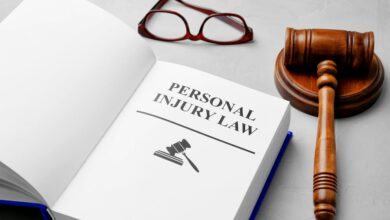Estate Planning Mistakes to Avoid: Tips from Experienced Lawyers

Estate planning is a tough cookie to crack. People are always quite laidback when it comes to planning the estate properly. But it always comes back to bite them later. And it’s not just about doing estate planning once and then forgetting about it! You have to revisit it and update it regularly too.
That and a bunch of other stuff is super important if you want your estate planning to function correctly and satisfy all parties involved. In this article, we’re going to look at the most common mistakes that people make when doing estate planning.
We’ll also be telling you about how to avoid or fix those mistakes.
Read More: 5 Questions to Ask Your Estate Planning Attorney
9 Estate Planning Mistakes to Avoid
Leading lawyers came together and prepared a list of the top 10 mistakes you should avoid at all costs when planning an estate. Professional Phoenix trust attorneys have worked on hundreds of estate planning cases and disputes, and they’re very sure that if you follow everything mentioned in this article and avoid these 10 mistakes, then you’ll be able to steer clear of any trouble down the road.
1. Neglecting to Update the Estate Plan
Regular reviews are absolutely important. It’s not just a matter of formality but things change in ways that cannot be predicted or always kept in mind. Reviewing your estate a few years later will open up many new opportunities for you to fix problems before they happen.
Failure to update your estate plan can result in outdated provisions that do not reflect your current circumstances or desires.
2. Overlooking Beneficiary Designations
Proper asset distribution is only fair. And when that doesn’t happen, a lot of people are unhappy and incidentally, there are a lot of problems that, frankly, could’ve been avoided easily in the first place.
This is almost always the case with poorly executed estate plans.
Don’t make the same mistakes as others. Never overlook the designations of beneficiaries and how are they going to change over the next 5 years, or whatever your next review date for the estate is.
Incorrect or outdated beneficiary designations can lead to unintended consequences and assets not passing to the intended recipients.
3. Not Considering the Impact of Taxes
It’s important to strategize to minimize tax liability. Everybody wins in such a situation. On the contrary, if you don’t consider the impact of taxes at all, you’re basically just wasting money.
Failing to consider tax implications can result in unnecessary tax burdens for your beneficiaries, reducing the value of your estate.
4. Ignoring the Importance of Healthcare Directives
Medical decision-making is pretty important. Nothing is pre-planned. Anything could happen in the future regardless of how protected you feel right now. Never ignore healthcare directives when planning your estate.
Without healthcare directives, your medical treatment preferences may not be known, causing confusion and potential conflicts among family members.
5. Neglecting to Plan for Incapacity
Establishing a power of attorney or powers of attorney is a critical task. Physical or mental incapacity never comes knocking. Expert lawyers have seen many excellent estate plans come to bad ends simply because the planners never imagined any kind of incapacity to execute the estate.
If you become incapacitated without powers of attorney in place, your financial and healthcare decisions may be left in the hands of others without your input.
6. Doing it Yourself
Most people think that it’s very easy to find a revocable living trust lawyer near me. If I need one, I’ll just get one. But here’s what happens—When a problem actually happens the lawyer you conjure up at the last moment doesn’t know any family dynamics, wasn’t part of the whole process, and might miss out on some trivial details which might have great repercussions.
It’s always best to let a professional handle estate planning and keep that person as a contact forever instead of going the DIY route and hiring a lawyer later at an increased fee later when a dispute arises.
There are many risks and pitfalls in self-drafted documents. Don’t plan an estate that will be picked apart by anyone in court! Self-drafted estate planning documents may not comply with legal requirements, leaving them vulnerable to challenges and potential invalidation.
7. Failing to Address Digital Assets

Digital assets not just include financial assets like stocks or cryptocurrency, but also your online presence. What happens to your online accounts such as banking ones, social media accounts, or Google or Apple accounts that are linked to a bunch of services which can be misused?
Deliberate all your digital assets and the correct way to manage them when you’re gone.
Neglecting to include digital assets in your estate plan can result in the loss of valuable digital property and difficulties for your loved ones in managing your online presence.
8. Disregarding Family Dynamics
Any estate planning lawyer Phoenix will tell you that family dynamics always play a pivotal role in determining how happy or unhappy people are with the details of your estate plan.
Anticipating and mitigating potential conflicts is an invaluable asset. But not everybody has this capability. Consult with an estate planning lawyer and discuss who could be where, and what kind of problems might arise. This allows you to nip issues in the bud.
Ignoring family dynamics can lead to conflicts and disputes over your estate, potentially damaging relationships among family members.
Read More: How to Find an Estate Planning Attorney
9. Not Seeking Professional Advice
You should always go for professional advice. From choosing an estate planning attorney to going for an experienced Phoenix probate lawyer who can offer you special legal assistance during the probate process of the estate—It’s very important that you let expertise dictate the terms and resolve conflicts.
The value of working with an experienced estate planning lawyer cannot be described in words.
Suffice it to say that without the guidance of an experienced estate planning lawyer, you may miss important considerations and make errors in your estate plan that could have significant consequences.
Wrapping Up
Avoiding these common mistakes in estate planning will help you to create better estate plans that are resilient and future-proof.
Don’t worry if some mistakes seem unavoidable or inapplicable. Just trust the best judgment of your attorney or anyone else you’re getting legal advice from and let them handle the rest.











